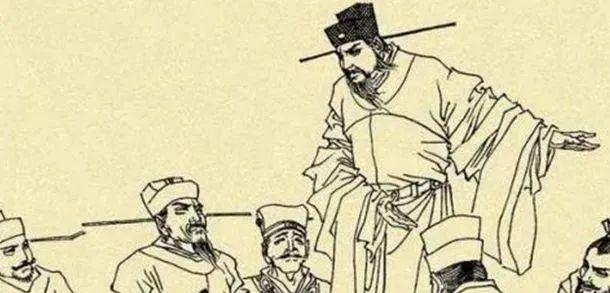Behind every idiom there are allusions you don't know

The party is the same
【Idioms】
【Pinyin】
dǎng tóng get yì
【Definition】
Crusade: Crusade, attack. Refers to gang assignments, favoring accomplices, and cracking down on people with different opinions.
【Source】
"Later Han Shu Dang Gong Chuan Preface": "Since Emperor Wu, advocating Confucianism, Huai Jing Xie Shu, where the Fog Society is located. As far as there is the theory of the division of stone canals, the party is the same as the other. ”
Explanation: Since Emperor Wu, people who advocate Confucianism and carry scriptures and carry classics can meet in large numbers everywhere, so that there are disputes and debates in Shiqu Pavilion, defensive attacks between schools, and people who dance and ink, which are popular for a while.
【Synonyms】
Forming a private party to expel dissidents and to commit adultery
【Antonyms】
Impartiality, impartiality, impartiality
【Usage】
Union; as predicate, object, definite; pejorative, used in written language.
【Idiom Story】
During the Western Han Dynasty, Liu Che took the throne and was known as Emperor Wu of Han. In the second year of his reign, he issued an edict ordering the court ministers and local princes and county guards to promote virtuous and literary scholars. Soon after the edict was issued, more than a hundred talented readers were sent from all over the country. Emperor Wu ordered each of them to write an article on how to govern the country, and one of them, Dong Zhongshu, wrote a good article, and Emperor Wu personally summoned him twice and asked him a lot. After Dong Zhongshu replied, he submitted two more articles, and Emperor Wu was very satisfied with them.
Dong Zhongshu's three articles are all about the relationship between heaven and man, so they are collectively called "Three Strategies of Heaven and Man", also known as "Measures for Raising Virtuous People". The theory promoted in it is called "heavenly induction". This theory deified the power of feudal rule, especially the emperor: whoever opposes the emperor is against the "heavens" is a great rebellion.
In order to implement this theory, Dong Zhongshu put forward three suggestions in the "Three Strategies of Heaven and Man": First, the doctrine of the Hundred Schools of Thought should be regarded as a heresy, banned, and confucius and his Confucian classics should be respected exclusively, so as to achieve political unity through cultural unification. This is the so-called "deposing of the Hundred Schools; Confucianism." The second is to establish the highest institution of learning to teach Confucian classics. The third is to recruit talents from all over the world and make them serve the imperial court loyally.
Dong Zhongshu's proposition of "deposing hundreds of families and respecting Confucianism alone" was very much in line with Emperor Wu's desire to unify the world. After he came to power, he set up a doctor of the Five Classics who specialized in teaching Confucian doctrine, and told fifty disciples about five Confucian classics, such as "Poetry", "Book", "Yi", and "Spring and Autumn". These disciples take the exam once a year, and those who have learned the scriptures can become officials, and those who have good grades can become high officials. Later, the number of doctoral disciples continued to increase, reaching a maximum of 3,000.
By the time emperor Liu Qing of han came to power, Confucianism had become the unifying ideology for maintaining feudal rule, and Confucianism was even more prevalent, and Liu Xiang himself had the five classics of Confucianism Xiao Wangzhi teach the prince. However, due to the fact that Confucians had different understandings of the Five Classics at that time, Emperor Xuan decided to hold a discussion.
In 51 BC, under the auspices of Xiao Wangzhi, a large-scale discussion was held in the Shiqu Pavilion of the Royal Library and Lecturing Office. In the course of the discussion, the Confucians entangled each other with those who had the same views as their own, while attacked those who had different views. For this reason, when commenting on this phenomenon, the author of the Book of the Later Han Dynasty called it "the party is the same as the difference", that is, the party is correcting the contract to attack the dissident.
【Example of sentence construction】
The proliferation of divergent commentaries and online blogs on economic issues has led to a growing perception that economists are more like political figures in the same party than social scientists who have gradually formed consensus on the basis of sufficient evidence.
Look at the picture to guess the idiom
Guess the idioms separately based on the information provided in the pictures below.
Come and challenge!
One
Two
Three
Four
Please leave your answer in the comments section!
The correct answer will be announced in the next issue!
Previous Answers:
1, happy on the eyebrows 2, happy to fall from the sky
3, rhinoceros looking at the moon 4, things are clustered